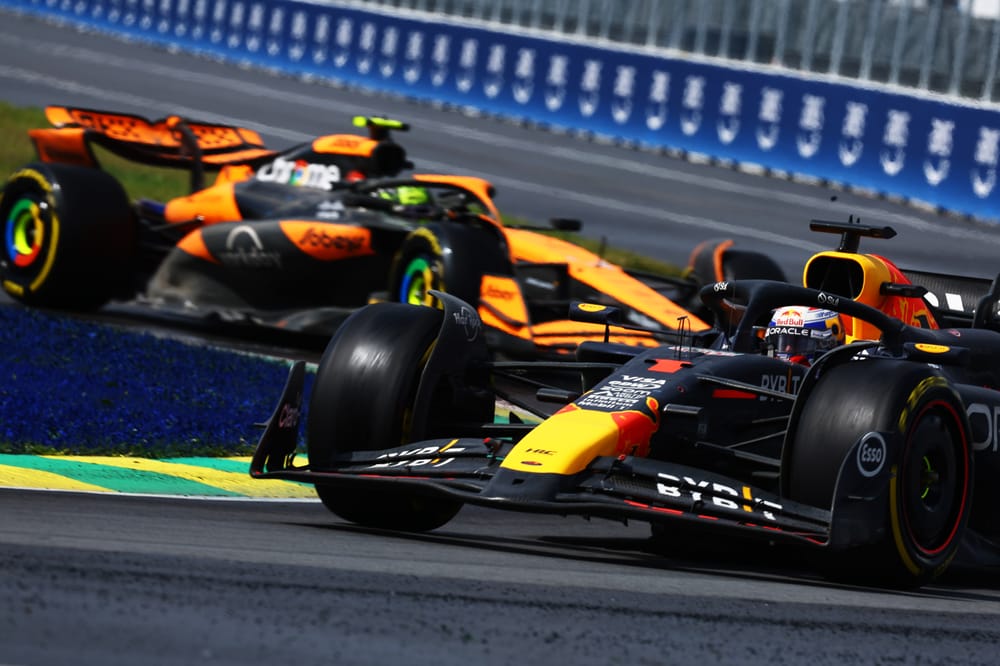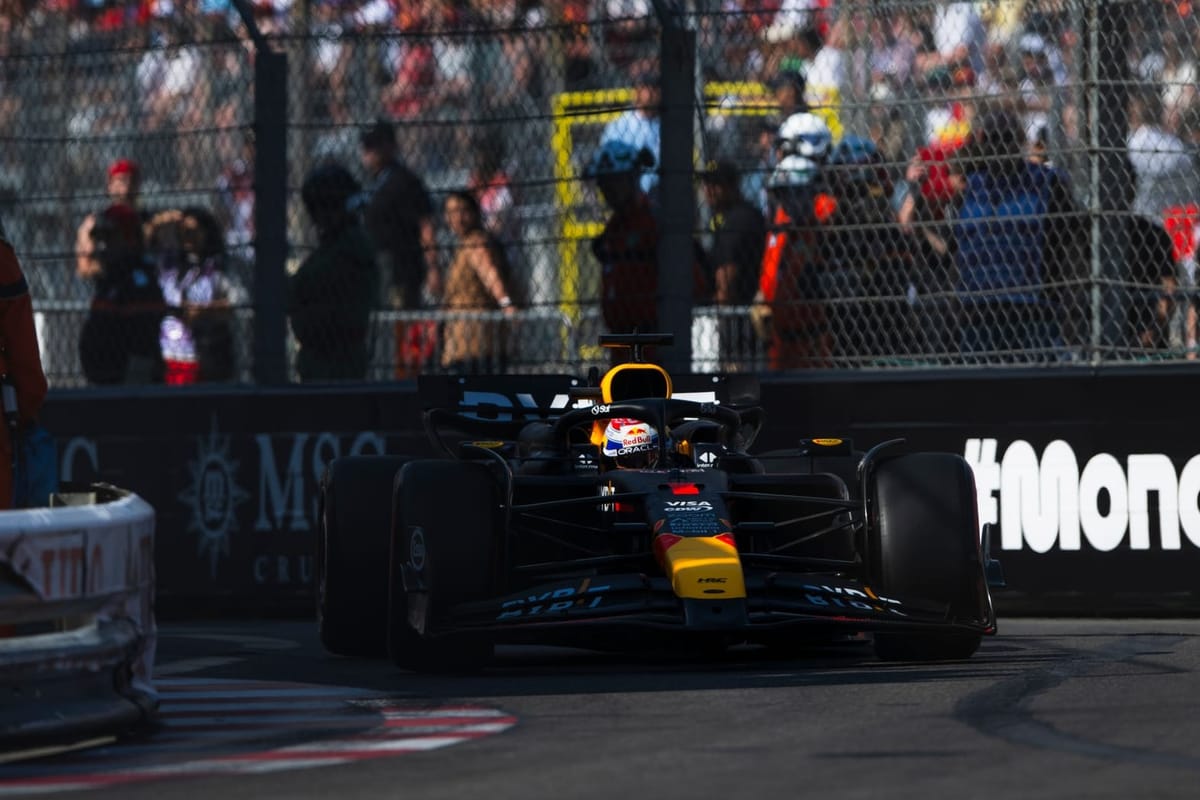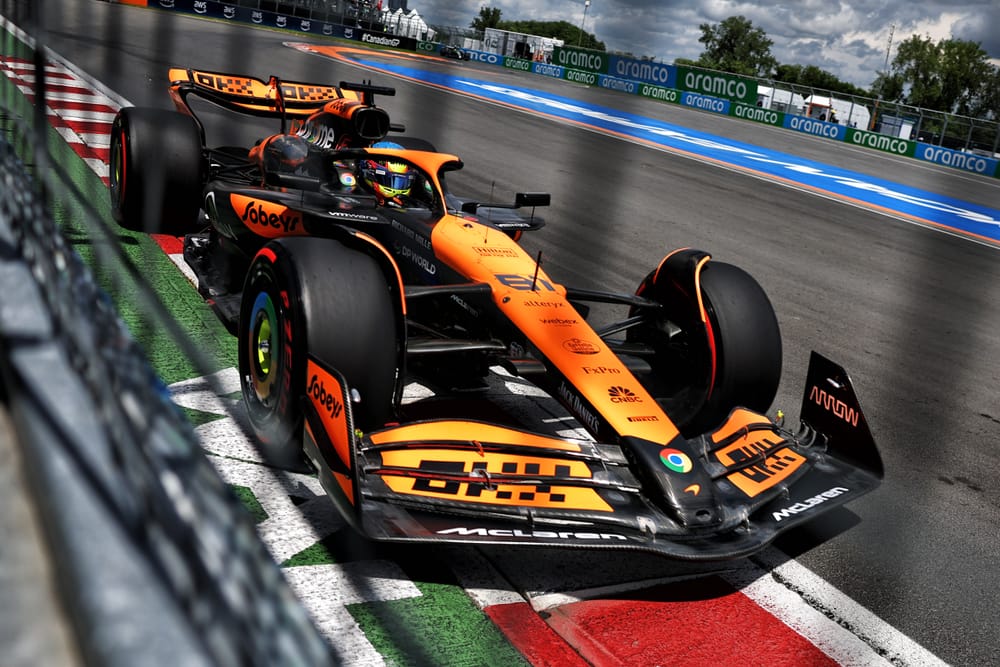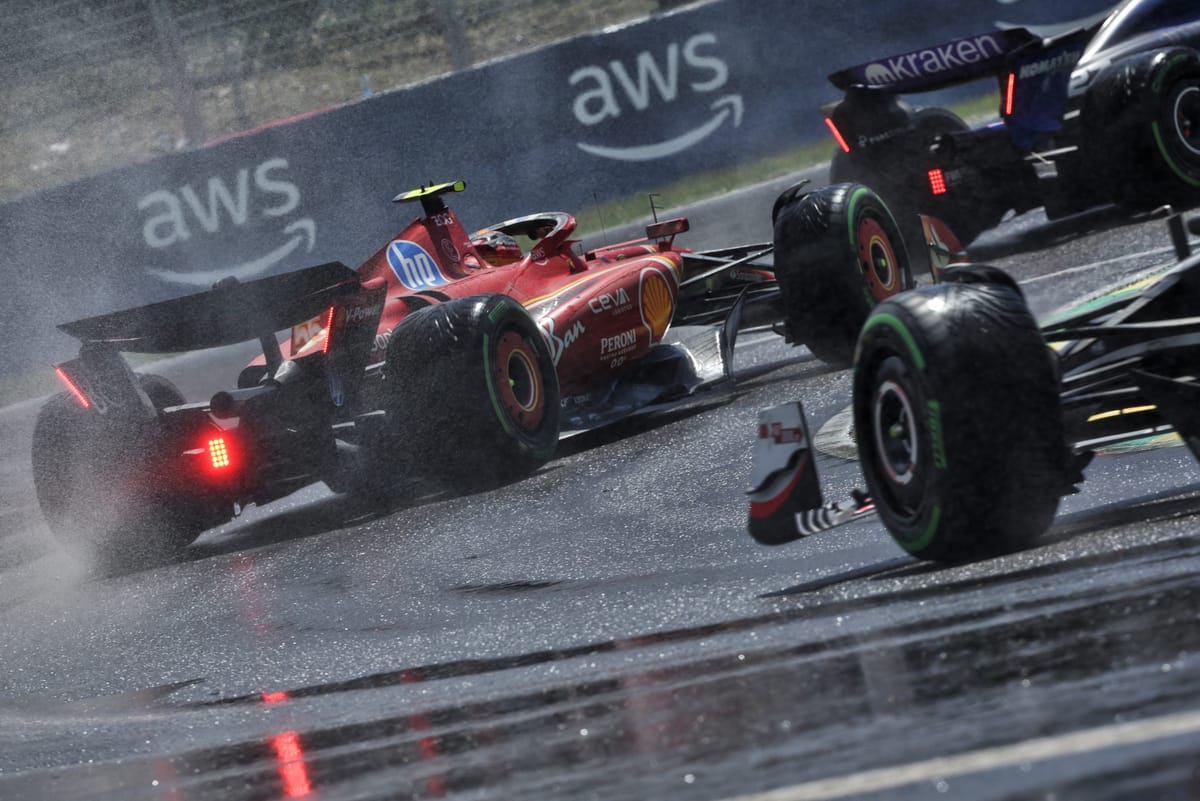Up Next

Max Verstappen finishing 25 seconds ahead of the first non-Red Bull driver in 2024's season-opener seemed like a clear indicator of a completely one-sided season.
All the pre-season hopes and dreams of a multi-car fight out front appeared crushed. But a dominant couple of opening weekends were followed by a far more exciting string of races - two of which Ferrari won, another that McLaren won and one Mercedes almost won.
So is F1 2024 now saved with three different teams on pole in the last four races?
The Spanish Grand Prix could be further proof of that. But it should also help answer some key questions hanging over both Red Bull and its main competition.
Has Red Bull 'downgraded' its RB20?
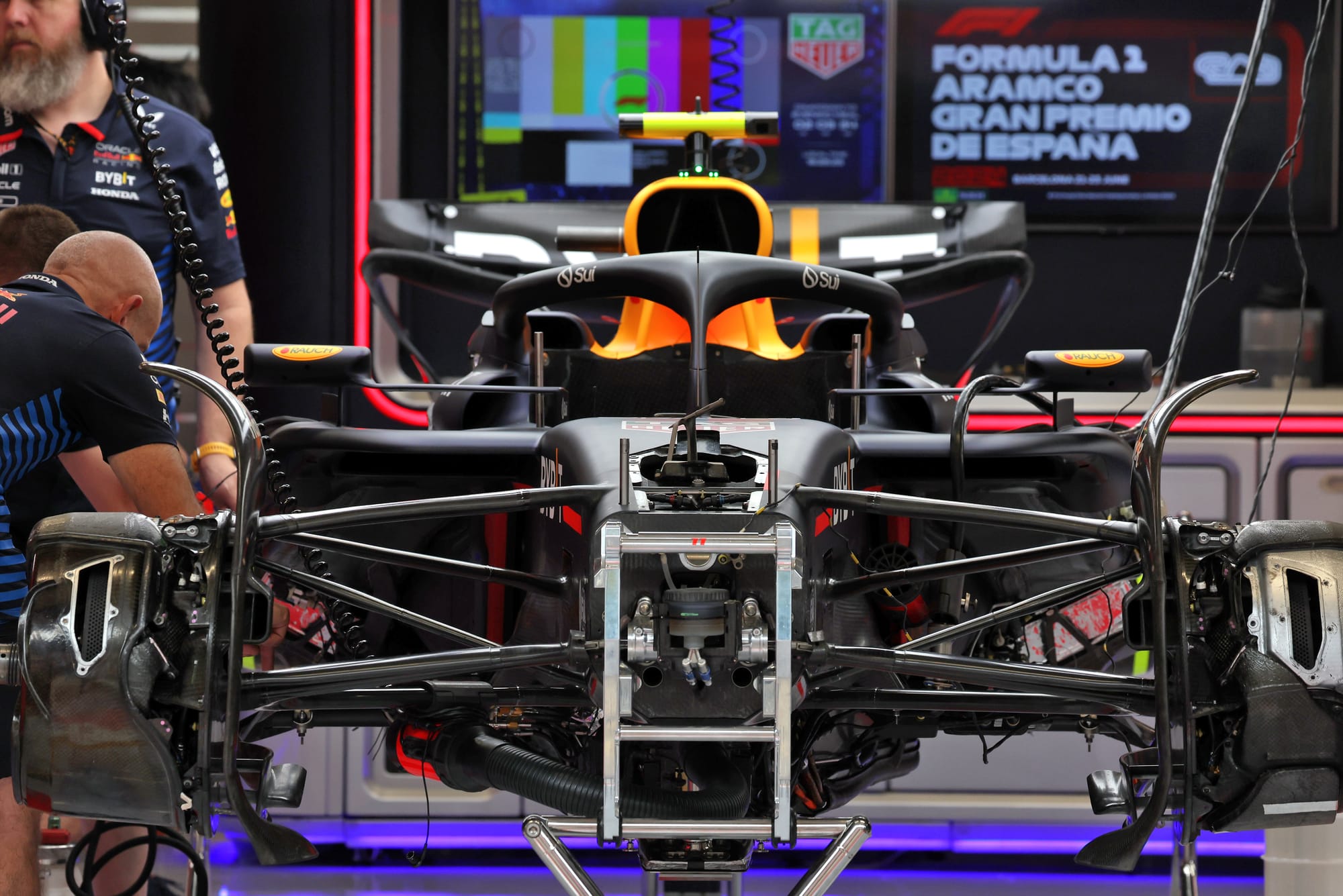
There didn't appear to be all that much wrong with the RB20 when it debuted in February but as Monaco and Canada demonstrated, it does have weaknesses that make it vulnerable at a certain type of track - one in particular that caused Max Verstappen so much grief in Monaco.
There's also been question marks over the merit of Red Bull's first major upgrade which it debuted in Imola.
Mercedes technical director James Allison didn't miss an opportunity in Canada to suggest Red Bull's RB20 might have gone backwards: "My guess is as soon as there's a decent range of cornering speeds they'll be useful [competitive] again, but it does look as if their upgrade was a downgrade. So fingers crossed".
As Red Bull team boss Christian Horner pointed out after the race the RB20 was still quick enough to beat Mercedes' upgraded W15 on Sunday in Montreal and it still has a healthy advantage in both championships.
The safety car intervention that helped Lando Norris in Miami, the unique nature of Monaco coupled with a Verstappen error in qualifying, and the rain throughout much of Montreal have somewhat skewed the picture.
Sergio Perez's tricky run of races (four points in three weekends) has also inflated the jeopardy in the constructors' championship. The fact that Verstappen's drivers' championship lead is bigger than Red Bull's constructors' lead is telling.
But it's been far tighter than Red Bull's become used to in recent years. Even if it has made progress with its RB20, F1 is a relative game. And it's all about Red Bull making relative gains versus the likes of Ferrari and McLaren (and increasingly Mercedes).
Allison's prediction of Red Bull being more competitive on more conventional circuits should be tested at this weekend's Spanish GP. Barcelona is the track F1 teams know better than any other and now it's removed its mickey-mouse chicane, the set-up challenge is reduced and it's a purer test of car performance.
"I don't think it will be like the beginning of the season. But we know that normally this is a track that our car should suit a bit more, and we're excited," Verstappen said on Thursday at Barcelona.
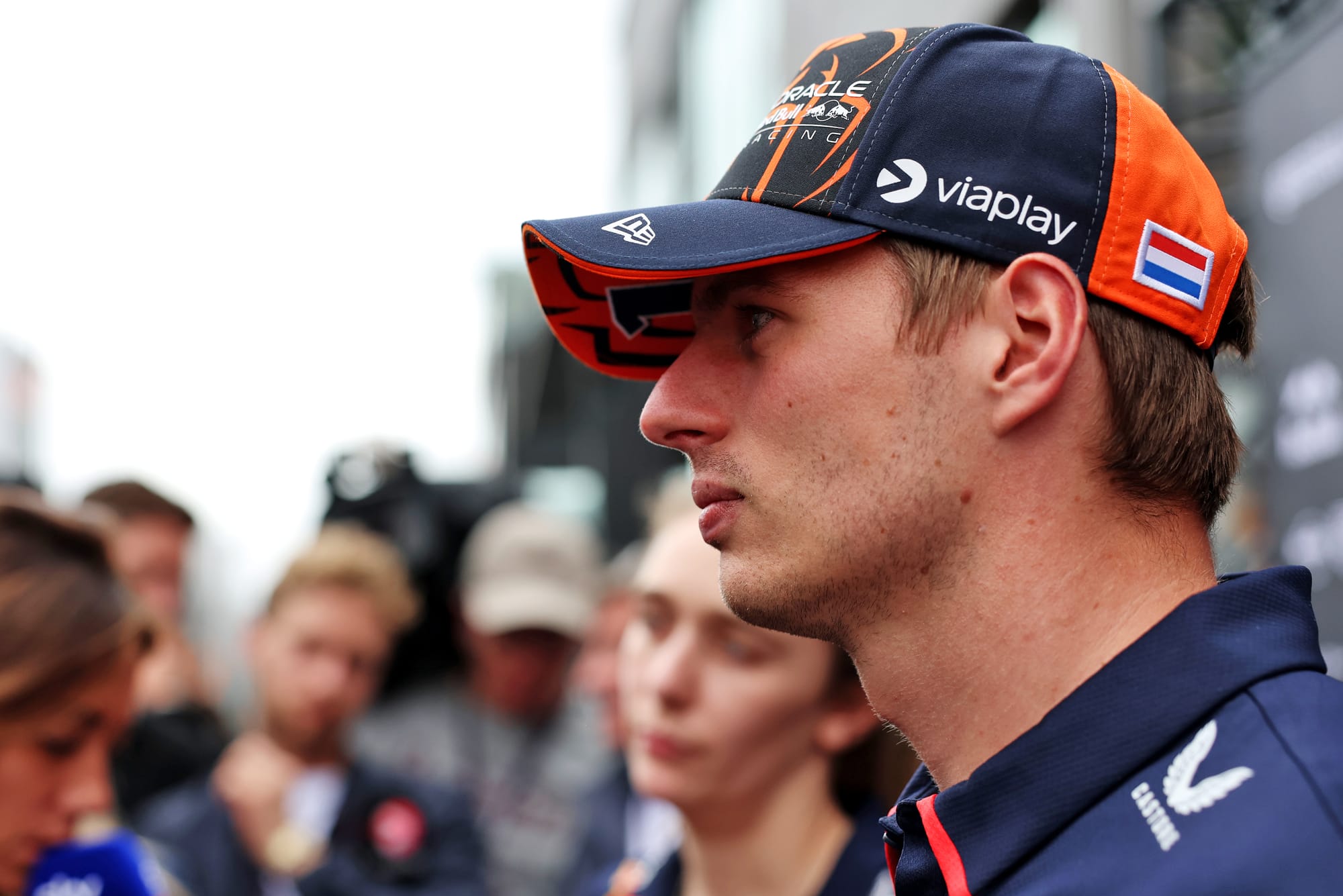
"I'm aware that everyone has been catching up a lot, so everyone I think is quite confident. But if you compare this to the last few races we've done, this should be a better track for us."
His rivals agree too with Leclerc saying "I believe we’ll see [Red Bull] back to a really good level this weekend".
After Barcelona there's a quick run of races with the Spanish GP kicking off a triple-header followed by races at the Red Bull Ring and Silverstone, so by the end of that run we'll know just how much trouble Red Bull is in - and just how much its advantage has really been cut down.
Can McLaren challenge on conventional circuits?
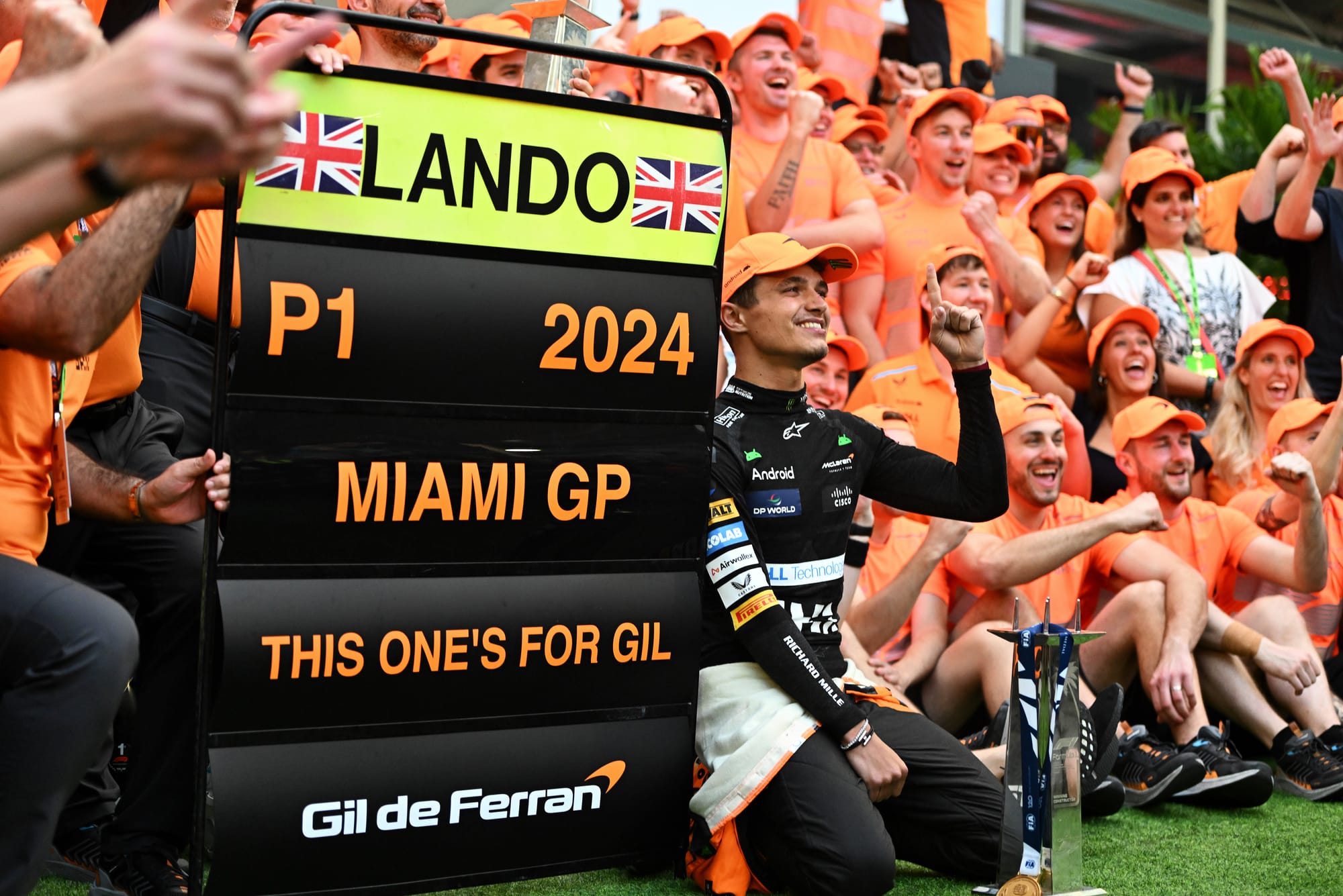
McLaren's arguably had the most impressive development rate of any F1 team over the past 12 months. It's transformed itself from a team at risk of Q1 exits at the start of 2023 to one of Red Bull's closest challengers a third of the way through 2024.
While there have been doubts about the success of Red Bull's Imola upgrade there's been no such uncertainty about McLaren's substantial Miami package, which won on its debut. That has seemingly halved its deficit to Red Bull and allowed it to challenge for victories (albeit unsuccessfully) at Imola, in Monaco and in Canada.
McLaren's even surprised itself with just how potent that upgrade has been. McLaren's low-speed corner weakness remains but that upgrade has helped it to make gains, as shown by Oscar Piastri almost stealing pole position from Charles Leclerc in Monaco.
The high-speed corner strength that was a hallmark of its 2023 car has been somewhat reduced by gains made by its rivals and the nature of Barcelona and Silverstone in particular should be a test of where that really is.
"We've been the most consistently just 'there' team. We've not been the team which has suddenly been quickest and has been dominating a weekend like we've seen Red Bull or Ferrari do," Norris said in Barcelona.
"So we've not had that absolute strength in certain places, but we've just been a very good all-rounder so far which over a course of a season is exactly what we want and is a good strength from last year when we were very up and down.
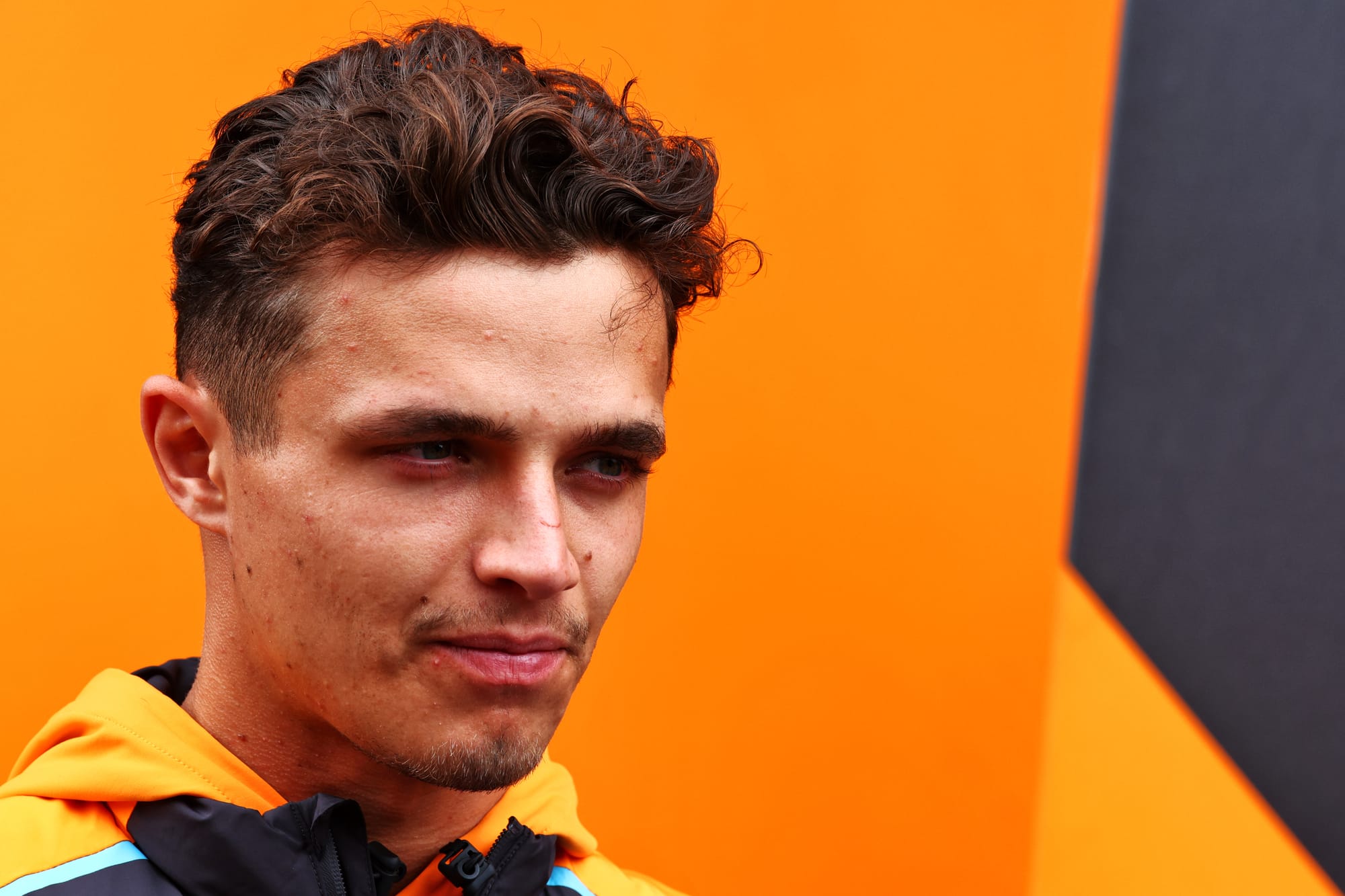
"But at no point I would say we've been the absolute outright best through a whole weekend. That's something we still need to work on and we still need to work to have a quicker car."
On its day of days it can clearly beat Red Bull but where is the actual baseline level of McLaren's 2024 car when Red Bull's on top form?
Has Ferrari slipped back?
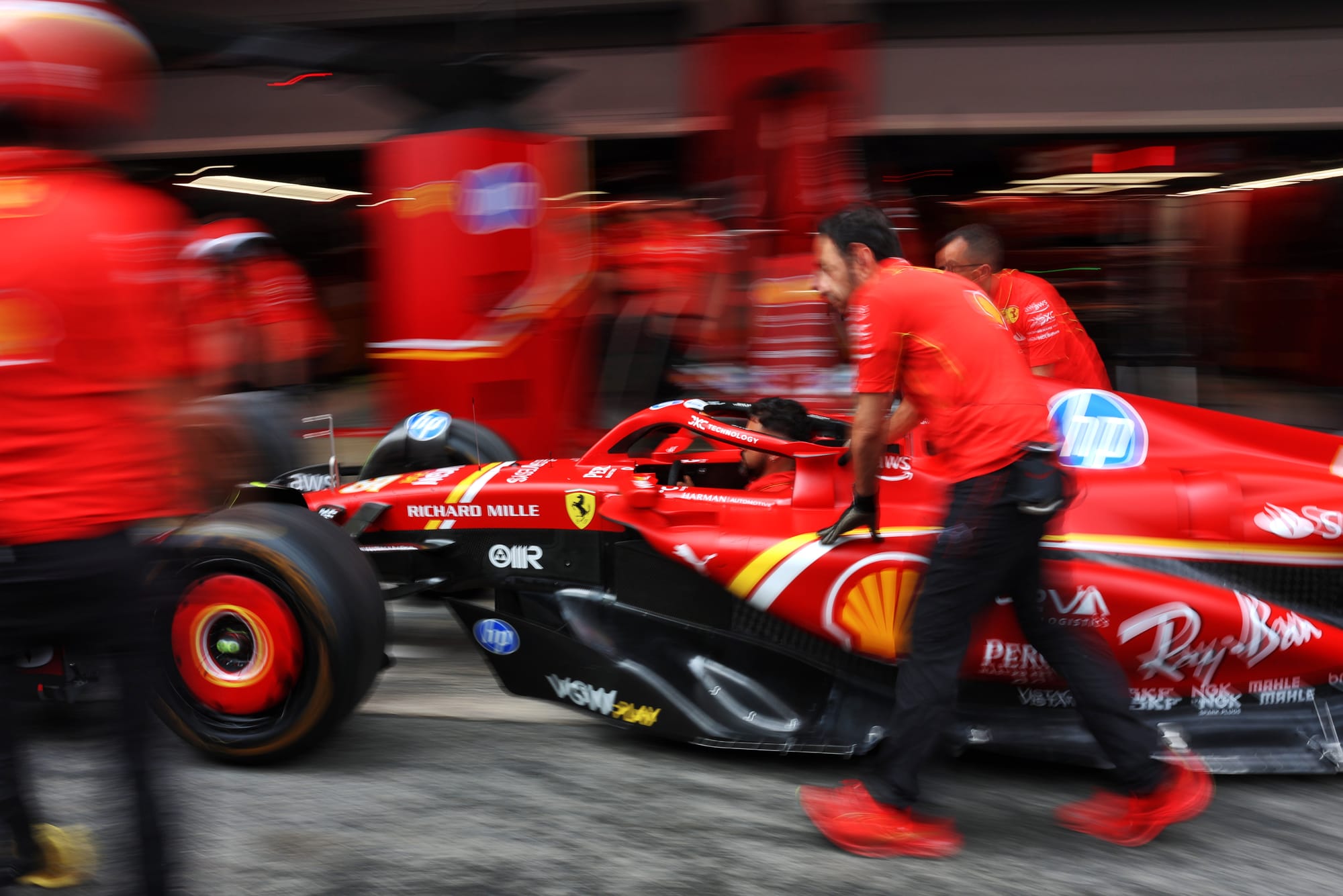
Ferrari started the season as the clear second-best team. It picked up the win in Melbourne when Red Bull slipped up and added another victory in Monaco that even began to spark speculation of a title fight.
But that was followed up in the worst possible way with a disaster-class of a weekend in Montreal with incorrect tyre pressures leading to a miserable qualifying followed by a woeful slick tyre gamble in the race on Leclerc's side and Carlos Sainz crashing out of 10th place.
Ferrari has pledged to conduct a "deep analysis" in the wake of Montreal and there's genuine reason to believe that was just a one-off as a result of essentially everything that could have gone wrong doing so.
On the other side of the coin Leclerc dominating Monaco has to also be seen as something of a one-off with the unique characteristics of the track hurting Red Bull and boosting Ferrari - elevated by Leclerc being on peak form all weekend.
Barcelona is less of a test of whether Montreal was a one-off and more of a test of Ferrari's Imola upgrade. Much like Red Bull it didn't have a breathtaking debut like McLaren despite plenty of pre-event hype.
But a conventional circuit like Barcelona will inform whether Ferrari's made any further gains on those last couple of tenths separating it from Red Bull.
Is Mercedes revival another false dawn?
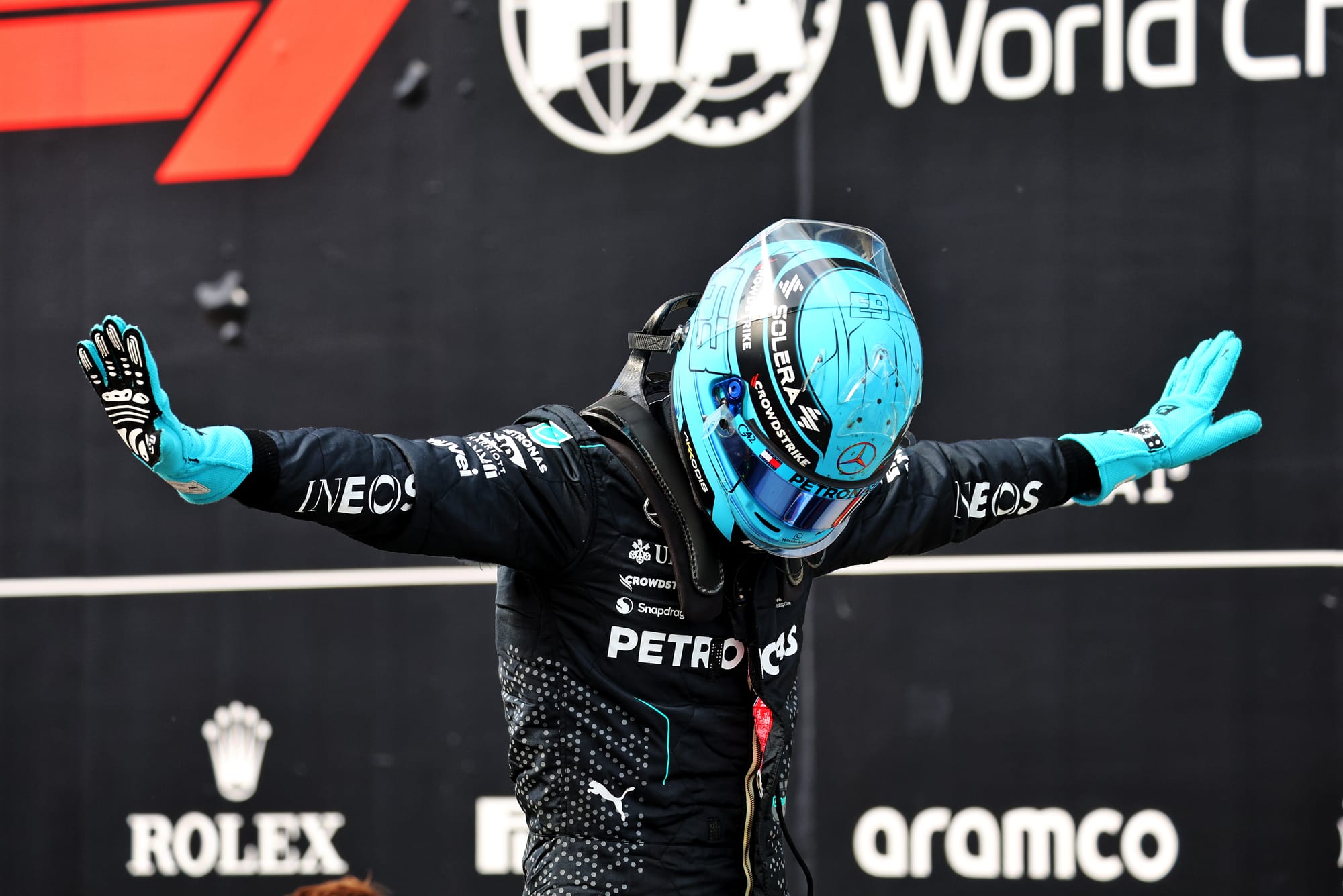
Arguably the biggest surprise of 2024 so far was Mercedes' sudden frontrunning pace in Montreal.
Yes it had made solid, incremental gains throughout the season so far but the manner in which it took pole position and challenged for victory was impressive after a season of clearly being the fourth-fastest team.
We've been here before though with Mercedes. George Russell's maiden win at the 2022 Brazilian GP was partially responsible for tricking Mercedes into believing its original ground effect concept was fruitful enough to stick with for 2023.
Then came Lewis Hamilton's back-to-back second places at Austin (albeit officially taken away by the plank infringement) and in Mexico that hinted Mercedes might finally be on the right track with major car architectural changes planned for the winter.
In fact, such are the false dawns Mercedes' simulating tools have also provided, Russell didn't even believe the gains the simulator promised the upgrades would bring pre-Canada were real.
But Canada was real and there are reasons for Mercedes to believe this breakthrough is more significant than the others. Nothing shows that progress better than the graph of Mercedes' supertimes in 2024 relative to its rivals.
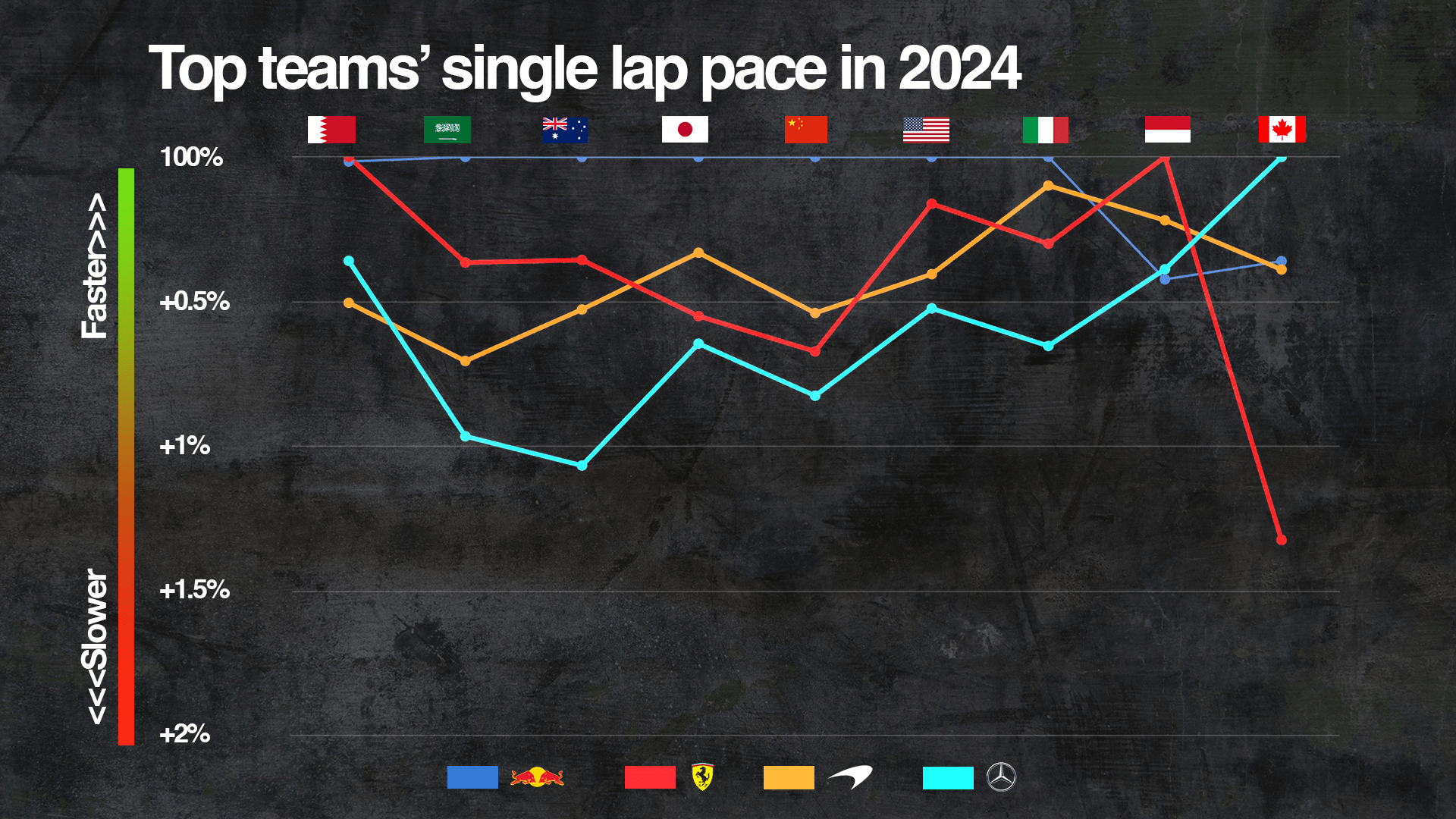
Part of that improvement is a return to a more conventional loaded front wing that gives more rear stability for the drivers. It's made gains via its floor profile too, an area Red Bull has exploited to devastating effect in recent years. Further updates have been promised every weekend until Silverstone.
Mercedes has a strong record at Barcelona in the ground effect era, having finished as the best non-Red Bull car in both 2022 and 2023. So this weekend still won't be definitive proof of where it truly sits - just as second and third in 2023 wasn't evidence it was suddenly the second-fastest car.
But at worst it appears to now be on the heels of McLaren and Ferrari and as Montreal promised, it might even be able to trouble Red Bull at the right track.
"This is going to be a real test and if we can be fast this weekend that bodes really well for the season," Russell pointed out.
All of that will be answered at arguably the most important weekend yet in F1's far better-than-expected battle at the front.

